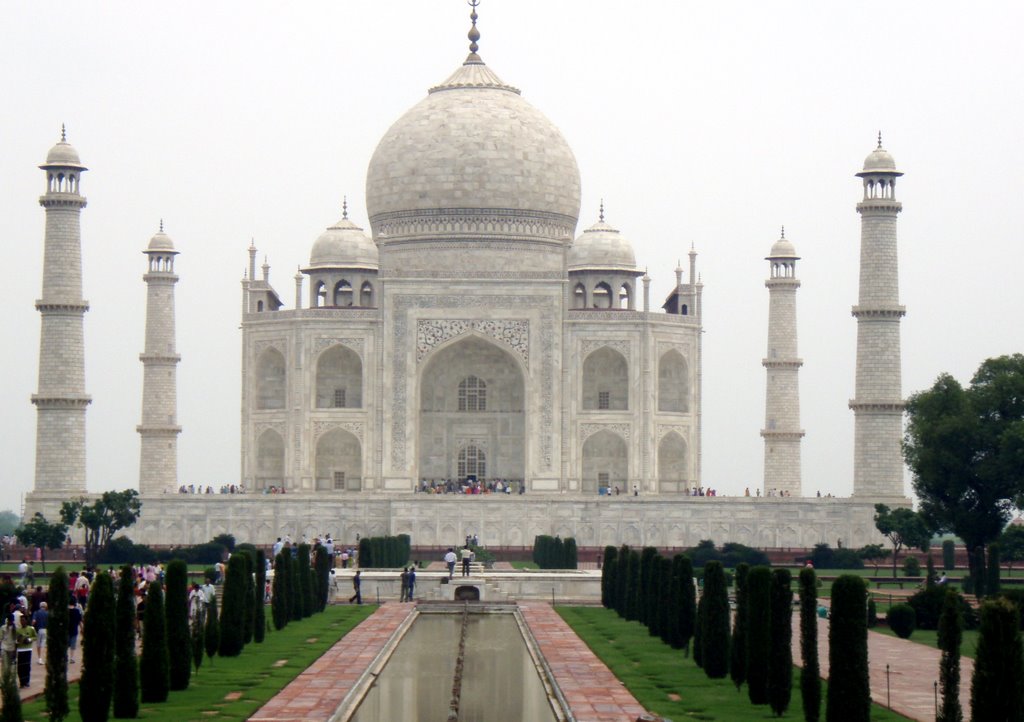Sahara Michael's Care Home Day 1

June 4, 2007
Last night we moved into our new apartment in Vasant Kunj and it seems to be in a much better part of town, however, we are imprisoned in our own apartment because the Gujjra conflict has now moved to Delhi and two buses were burned and two bombs went off. We are not at all affected by this so please don't worry about us, our coordinators' first priority is our safety and they would not willingly put us in harm's way, besides Delhi is so huge.
Since we weren’t able to travel to Jaipur this week because of the political conflict of the same community, today we started our rotations at the Sahara Michael’s Care Home for people living with HIV/AIDS (PLWHA). Sahara is a unique Non-Government Organization (NGO), which has for the last 28 years pioneered new and innovative approaches in responding to the needs of people living with HIV/AIDS (PLWHA)and PWUDI (People who use drugs illicitly). Sahara's programs are located in various parts of Delhi so that they are most accessible for the communities most in need of their services.
The Mission of SAHARA is to empower people facing difficult situations due to substance use and HIV/AIDS. Sahara has implemented a range of strategies to empower people, strengthen communities, to encourage safer behaviours and to aid in the reintegration of people into society. Today Sahara runs 39 projects most of which address substance use and HIV/AIDS across 5 states in India reaching between 350,000 to 400,000 people per year. Sahara is run almost entirely by former substance users and PLHA. Sahara runs services for men, women, children and the transgender community.
Some of Sahara’s projects include HIV/AIDS Care and Support Homes, which provides medical care, nutrition, counseling and Antiretroviral Treatment (ART) free of charge; HIV/AIDS Transgender Community project, which we visited on Monday 5/28/07; a Drop in Center/Night Shelter for Street Children, which supports street children through the provision of education, food, detoxification and referrals to other organizations that provide vocational training. Sahara also runs a DOTS project, which is a treatment program that provided tuberculosis medications to patients on a weekly basis to reinforce compliance and adherence. Sahara also runs a Women and Children Shelter, which we will be visiting this Friday. The Shelter provides a haven for women who have had traumatic experiences, providing them with HIV care, rehabilitation, job training, midway homes, and adult education and job placement. The Women and Children Center also has an Income Generation.
Last but not least Sahara has a Working Women’s Hostel, which is specifically for women who have been trafficked, and their children who are usually homeless with no job skills. The program teaches them vocational skills and helps them finds jobs. Sahara also provides advocacy and sensitizes medical and paramedical professionals to HIV positive people to reduce the stigma they face when seeking health care. While the stigma situation is getting better there’s still a lot of work to be done in this regard. Follow up and evaluation are a big component of Sahara as their funding agencies, the Catholic Relief Society and Family Health International demand results.
Sahara established Delhi's first hospice for PLWH/A (Michael's Care Home-the site of our visit today)that could provide medical and palliative care in a manner that treats HIV+ people with the dignity and respect as any human being deserves. Michael’s care home has 35 beds and at any given time has 85% - 90% occupancy. The home receives support from NACO (National AIDS Control Organization) and from international NGOs such as Catholic Relief Services (CRS) and Family Health International (FHI). A physician comes in to make rounds each day, and they also have staff nurses around the clock and full time counselors provides counseling, medical care, clean needles, spirituality services to both HIV/AIDS patients as well as IV drug users. The program also gives hands on care training for HIV+ patients and their families so that they can become reintegrated into the family and community, because a lot of times when a family finds out a member is HIV+ they kick them out of the house because of fears of getting the virus themselves.
Sahara also runs an income generation program for the patients where they make clothes, tapestries and other handicrafts.
It seems so far from all of our visits and conversations with experts, that people in India know the term HIV/AIDS but they don’t know any details as such they have many misconceptions about what it is, how it is transmitted resulting in stigmatization. One of these falsehoods is that everyone who gets HIV must have had sexual relations with a commercial sex workers or participated in MSM activities. In reality, modes of transmission vary here from blood transfusions, as was the case of a young man we met during our rotations at St. Stephens who got HIV at 14 years old from a blood transfusion, or dirty needle use from quack practitioners as I’ve previously mentioned.


No comments:
Post a Comment